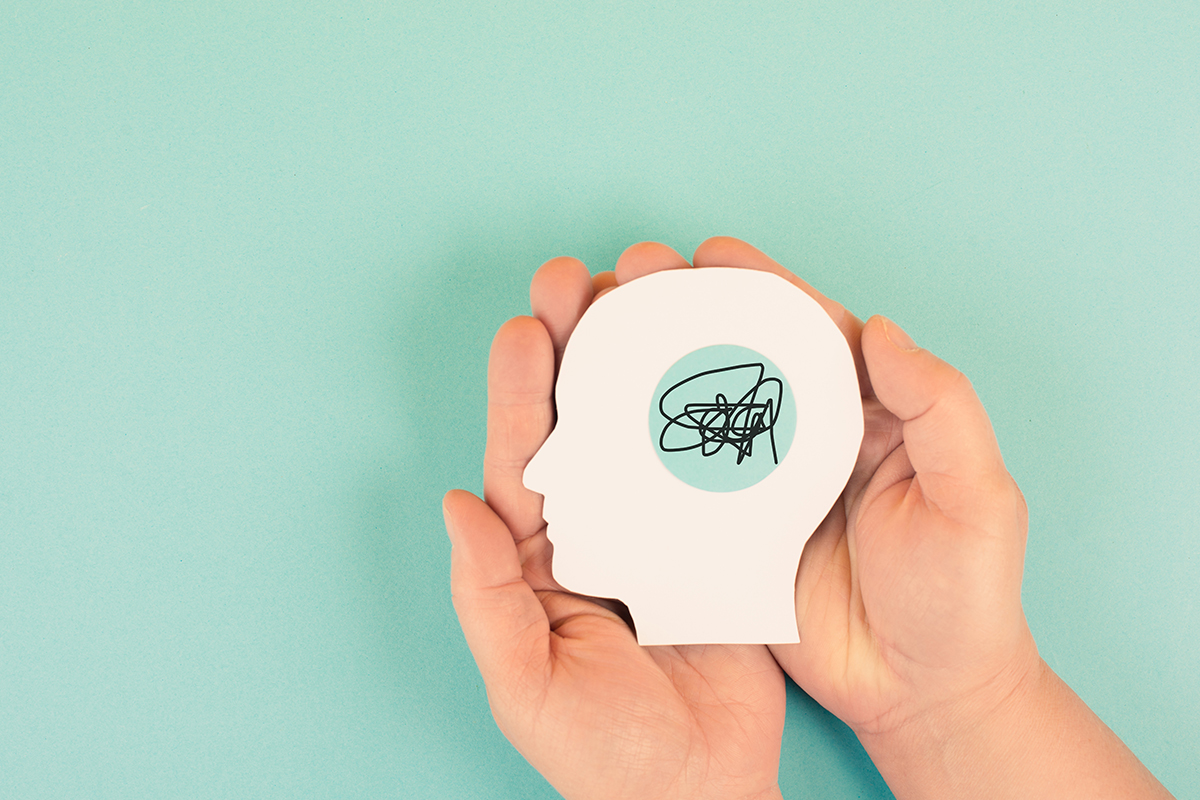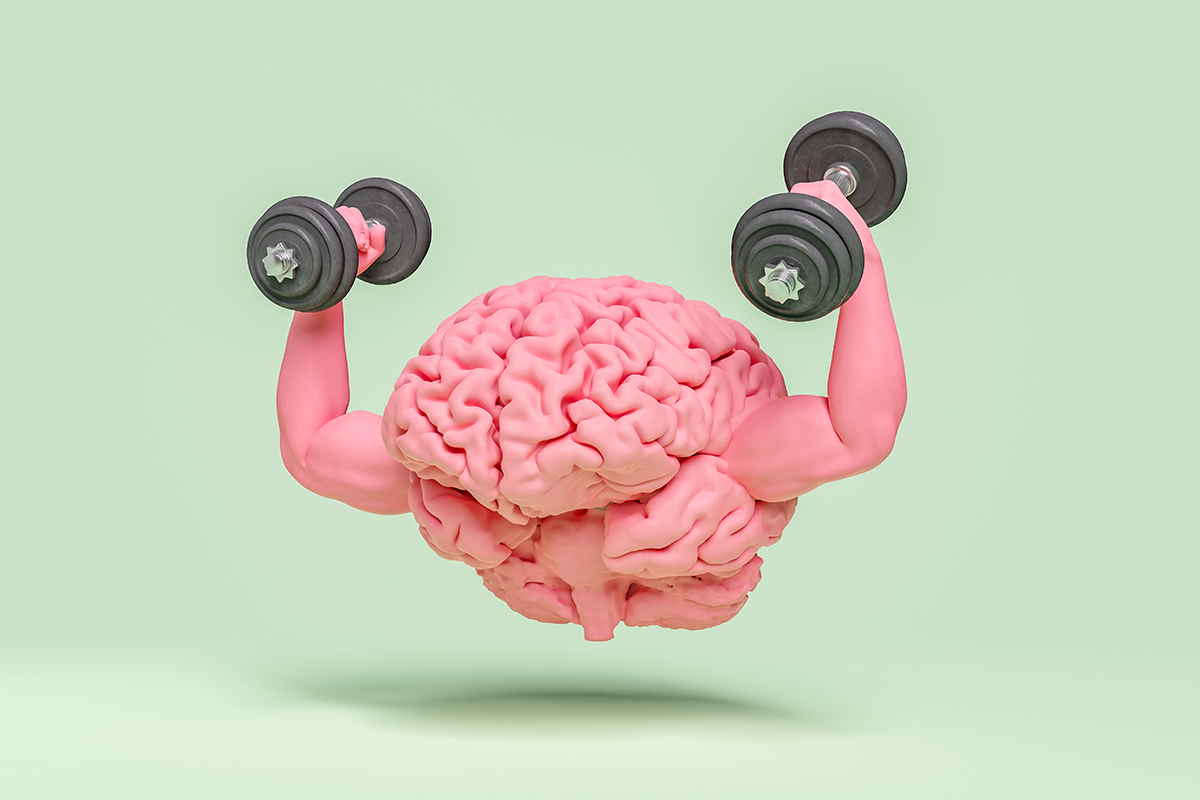
Can Neurofeedback Train the ADHD Brain?
Living with Attention Deficit Hyperactivity Disorder (ADHD) presents daily challenges that often demand innovative solutions. While traditional treatments such as medication have been the go-to for many, a more unique approach called neurofeedback is gaining traction.
Learn More
Can Neurofeedback Help with Insomnia?
Millions of people worldwide grapple with the torment of insomnia, a sleep disorder that can wreak havoc on one’s physical and mental health. While there are numerous strategies to tackle this issue, neurofeedback therapy has emerged as an intriguing option in recent years. In this post, we will explore the question, “Does neurofeedback help insomnia?” while also delving into other effective strategies to combat sleepless nights and the unique benefits of neurofeedback therapy for improving sleep.
Understanding Insomnia
Before we discuss neurofeedback therapy and its potential impact on insomnia, let’s first understand what insomnia is and why it poses such a significant challenge to those who experience it.
Insomnia is characterized by persistent difficulties falling asleep or staying asleep, despite having the opportunity to do so. This sleep disorder can have profound effects on an individual’s life, leading to:
- Daytime Fatigue: Insomnia sufferers often experience severe fatigue, impairing their ability to concentrate and function optimally during the day.
- Mood Disturbances: Insomnia is closely linked to mood disorders, such as anxiety and depression, exacerbating emotional distress.
- Reduced Quality of Life: Chronic insomnia can have a significant impact on one’s overall quality of life, as it impairs daily functioning and enjoyment.
- Health Consequences: Insomnia is associated with an increased risk of various health problems, including cardiovascular issues, obesity, and diabetes.
Given the adverse effects of insomnia, it’s no wonder individuals seek effective treatments to regain their ability to sleep peacefully. Neurofeedback therapy is one such treatment option gaining attention in the field of sleep medicine.
Neurofeedback Therapy: An Overview
Neurofeedback therapy, also known as EEG biofeedback, is a non-invasive therapeutic approach designed to help individuals regulate their brainwave patterns. It involves the use of electroencephalography (EEG) technology to measure brainwave activity in real-time and provide feedback to the individual.
The primary goal of neurofeedback is to enable individuals to gain greater control over their brainwave activity, ultimately promoting healthier patterns associated with improved sleep, reduced stress, and enhanced overall mental well-being.
Can Neurofeedback Help Insomnia?
The relationship between neurofeedback therapy and insomnia is a subject of ongoing research, but there is promising evidence to suggest that neurofeedback can be beneficial for individuals struggling with sleep disorders like insomnia. Here are some key ways in which neurofeedback may help:
- Stress Reduction: Neurofeedback can target brainwave patterns associated with stress and anxiety, which are often underlying causes of insomnia. By training individuals to produce calmer brainwave states, it may help reduce the psychological factors contributing to sleep disturbances.
- Cognitive Enhancement: Some forms of neurofeedback focus on improving cognitive functions, including attention and executive function. Enhanced cognitive abilities can lead to better sleep by reducing racing thoughts and mental restlessness at bedtime.
- Sleep Architecture: Neurofeedback can be tailored to address specific brainwave patterns that impact sleep architecture. By promoting the production of more conducive brainwave states for sleep, it may improve sleep quality and duration.
- Medication Reduction: For individuals reliant on sleep medications, neurofeedback therapy can serve as an alternative or complementary approach. Over time, it may help reduce the need for medication, potentially minimizing side effects.
- Personalized Approach: Neurofeedback therapy is highly individualized, targeting an individual’s unique brainwave patterns. This personalization allows for a precise and tailored approach to address the specific factors contributing to insomnia.
- Long-Term Benefits: Neurofeedback therapy aims to produce lasting improvements in sleep quality. As individuals become more proficient at self-regulation, they can continue to apply these skills even after completing therapy.
However, it’s important to note that neurofeedback therapy is not a one-size-fits-all solution, and its effectiveness may vary from person to person. It is crucial to consult with a qualified healthcare professional, such as a licensed psychologist or neurofeedback therapist, to determine if neurofeedback is a suitable option for your specific insomnia concerns.
Other Strategies for Improving Insomnia
While neurofeedback therapy shows promise for improving sleep in individuals with insomnia, it’s essential to consider a multifaceted approach to addressing this sleep disorder. Here are additional strategies to complement neurofeedback therapy or explore independently:
- Cognitive Behavioral Therapy for Insomnia (CBT-I): CBT-I is a highly effective, evidence-based therapy for insomnia. It focuses on changing the negative thought patterns and behaviors associated with sleep disturbances.
- Sleep Hygiene: Practicing good sleep hygiene involves adopting habits that promote better sleep. This includes establishing a consistent sleep schedule, creating a relaxing bedtime routine, and optimizing your sleep environment.
- Mindfulness and Relaxation Techniques: Techniques such as deep breathing, meditation, and progressive muscle relaxation can help calm the mind and reduce anxiety, making it easier to fall asleep.
- Diet and Nutrition: Avoid consuming heavy meals, caffeine, and alcohol close to bedtime, as they can disrupt sleep. Opt for light, balanced snacks if you’re hungry before bed.
- Physical Activity: Regular exercise can improve sleep quality, but avoid vigorous workouts close to bedtime, as they can be stimulating.
- Limit Screen Time: Exposure to the blue light emitted by screens can interfere with sleep. Avoid screens for at least an hour before bedtime or use blue light-blocking glasses if necessary.
- Medication Consultation: If necessary, consult with a healthcare provider about the appropriate use of sleep medications. These should only be used under professional guidance and as a short-term solution.
Insomnia is a challenging sleep disorder that affects millions of individuals, and its consequences extend beyond just sleepless nights. While neurofeedback therapy holds promise as a potential treatment for insomnia, it should be considered as part of a comprehensive approach to improving sleep.
When exploring treatments for insomnia, it’s crucial to consult with qualified healthcare professionals who can assess your individual needs and recommend the most suitable interventions. Whether you choose neurofeedback therapy, cognitive behavioral therapy, or a combination of strategies, the goal remains the same: to achieve restful nights and regain control over your sleep patterns.
Remember that addressing insomnia requires patience and perseverance, but with the right guidance and strategies, a better night’s sleep is within reach. For more information on our Neurofeedback programs at Cognitive Solutions L.C., please visit our Neurofeedback Services page.
Learn More
How Can I Improve My Sleep?
Sleep is not just a period of rest; it is a fundamental aspect of our overall health and well-being. Yet, many of us find ourselves tossing and turning, unable to drift into a peaceful slumber. The consequences of poor sleep can be profound, affecting our physical health, mental well-being, and overall quality of life. In this blog post, we will explore a myriad of strategies to improve your sleep and delve into the potential benefits of neurofeedback therapy in achieving restful nights.
The Importance of Quality Sleep
Before we delve into the strategies, let’s emphasize the critical importance of quality sleep. Sleep is when our bodies and minds repair, recharge, and reset for the day ahead. It plays a pivotal role in various aspects of our lives:
- Physical Health: Adequate sleep is essential for maintaining a healthy immune system, regulating hormones, and repairing tissues. It can help prevent chronic conditions such as obesity, diabetes, and heart disease.
- Mental Well-being: Sleep is closely linked to our emotional and mental health. It helps regulate mood and cognitive function, making us more resilient to stress, anxiety, and depression.
- Productivity and Creativity: A good night’s sleep enhances cognitive functions like problem-solving, creativity, and memory, which are vital for productivity in our daily lives.
- Energy and Alertness: Quality sleep ensures you wake up feeling refreshed and energized, ready to face the day with focus and alertness.
With these aspects of functioning in mind, let’s explore various strategies to help you improve sleep.
Establish a Consistent Sleep Schedule:
One of the most effective ways to improve sleep is to set a consistent sleep schedule. Go to bed and wake up at the same time every day, even on weekends. This helps regulate your body’s internal clock, making it easier to fall asleep and wake up naturally.
Create a Relaxing Bedtime Routine:
Engage in calming activities before bedtime, such as reading, gentle stretching, or taking a warm bath. Avoid stimulating activities like watching TV or using electronic devices that emit blue light, as they can interfere with your ability to fall asleep.
Optimize Your Sleep Environment:
Make your bedroom a sanctuary for sleep. Ensure your mattress and pillows are comfortable, and the room is dark, cool, and quiet. Consider using blackout curtains and white noise machines if necessary.
Limit Stimulants and Alcohol:
Reduce your consumption of caffeine and alcohol, especially in the hours leading up to bedtime. These substances can disrupt your sleep patterns and reduce sleep quality.
Mindful Eating:
Avoid heavy or spicy meals close to bedtime, as they can lead to discomfort and indigestion. Opt for a light, balanced snack if you’re hungry before bed.
Stay Active:
Regular physical activity can promote better sleep. Aim for at least 30 minutes of moderate exercise most days, but avoid intense workouts close to bedtime, as they can be stimulating.
Limit Naps:
While short power naps can be beneficial, long or irregular daytime naps can interfere with nighttime sleep. If you need to nap, keep it under 30 minutes and earlier in the day.
Manage Stress:
High levels of stress and anxiety can make it challenging to fall asleep. Practice relaxation techniques like deep breathing, meditation, or yoga to manage stress and calm your mind before bed.
Limit Screen Time:
The blue light emitted by screens can disrupt your circadian rhythm. Avoid screens for at least an hour before bedtime or use blue light-blocking glasses if you must use electronic devices.
Neurofeedback Therapy for Sleep Improvement:
Neurofeedback therapy, also known as EEG biofeedback, is a non-invasive technique that measures and provides real-time feedback on brain activity. It has gained popularity as a potential treatment for various mental health and neurological conditions, including sleep disorders. Here’s how neurofeedback therapy can benefit individuals struggling with sleep issues:
- Enhanced Self-Regulation: Neurofeedback helps individuals learn to regulate their brain activity. By providing real-time information about brainwave patterns, it empowers individuals to make conscious changes to promote relaxation and better sleep.
- Stress Reduction: Many sleep problems are linked to stress and anxiety. Neurofeedback can help individuals reduce stress by training their brains to produce calmer brainwave patterns, leading to improved sleep quality.
- Targeted Treatment: Neurofeedback therapy is highly customizable. It can target specific brainwave frequencies associated with sleep disturbances, such as excessive beta waves that indicate a racing mind, and help individuals shift into the more restful alpha and theta states.
- Reduced Reliance on Medication: For individuals relying on sleep medications, neurofeedback therapy offers a potential alternative or complementary approach. Over time, it may reduce the need for sleep medication.
- Long-Term Benefits: Neurofeedback therapy aims to produce lasting improvements in sleep quality. As individuals become more proficient at self-regulation, they can continue to apply these skills even after completing therapy.
- Personalized Approach: Each person’s brain is unique, and neurofeedback therapy tailors the treatment to individual brain patterns, making it a highly personalized approach to improving sleep.
While neurofeedback therapy shows promise for enhancing sleep quality, it’s essential to consult with a qualified healthcare professional, such as a licensed psychologist or neurofeedback therapist, to determine if it’s the right choice for your specific sleep issues. Improving your sleep is essential for your overall well-being, and there are many strategies you can implement to achieve restful nights. From establishing a consistent sleep schedule to creating a calming bedtime routine and optimizing your sleep environment, these practices can make a significant difference in your sleep quality.
In addition to these strategies, consider exploring the potential benefits of neurofeedback therapy if you have persistent sleep issues. Neurofeedback therapy offers a personalized, non-invasive approach to addressing sleep disturbances by training your brain to produce more conducive brainwave patterns for restful sleep. For more information on our neurofeedback programs at Cognitive Solutions L.C., please visit our Neurofeedback Services page.
Learn More
How Can I Improve My Anxiety?
Anxiety is a common and often debilitating mental health condition that affects millions of individuals worldwide. It can manifest in various forms, from generalized anxiety disorder (GAD) to social anxiety, panic disorder, and specific phobias. Living with anxiety can be overwhelming, but there are effective strategies and treatments available to help manage and improve anxiety symptoms. In this post, we will explore the question of how to improve anxiety, emphasizing the scientific evidence behind the benefits of neurofeedback therapy.
What is Anxiety?
Anxiety is characterized by excessive worry, fear, or nervousness about future events or situations. Common symptoms of anxiety may include:
- Physical Symptoms: These can include muscle tension, rapid heartbeat, sweating, trembling, and gastrointestinal discomfort.
- Cognitive Symptoms: Anxiety often leads to racing thoughts, excessive worry, difficulty concentrating, and a sense of impending doom.
- Behavioral Symptoms: Individuals with anxiety may avoid situations that trigger their anxiety, engage in safety behaviors, or experience restlessness and irritability.
- Emotional Symptoms: Anxiety can lead to feelings of fear, apprehension, and unease, often accompanied by a sense of dread.
What are Some Strategies to Improve Anxiety?
Managing anxiety involves a holistic approach that combines various strategies tailored to an individual’s unique needs and challenges. Here are some effective approaches to improve anxiety symptoms:
- Cognitive-Behavioral Therapy (CBT): CBT is one of the most evidence-based approaches for treating anxiety. It helps individuals identify and challenge irrational thoughts and beliefs that contribute to anxiety, replacing them with more rational and adaptive ones.
- Medication: Antidepressants, such as selective serotonin reuptake inhibitors (SSRIs) and benzodiazepines, are commonly prescribed to help manage anxiety symptoms. They can be particularly effective when combined with therapy.
- Mindfulness and Relaxation Techniques: Practices like meditation, deep breathing exercises, progressive muscle relaxation, and yoga can help individuals manage anxiety by promoting relaxation and reducing the physical symptoms of anxiety.
- Lifestyle Adjustments: Regular physical activity, a balanced diet, and adequate sleep play a crucial role in managing anxiety. These lifestyle changes can help regulate mood and reduce stress.
- Support Systems: Building a strong support network, including friends, family, or support groups, can provide emotional validation and a sense of connection, which is essential for managing anxiety.
- Time Management: Organizing tasks, setting priorities, and avoiding procrastination can help reduce the stress associated with feeling overwhelmed.
- Exposure Therapy: For specific phobias or fears, exposure therapy involves gradually and systematically exposing oneself to the feared situation, helping desensitize the fear response.
Can Neurofeedback Therapy Help Anxiety?
Neurofeedback therapy, also known as EEG biofeedback, is a non-invasive therapeutic approach that aims to help individuals regulate their brainwave patterns. It utilizes electroencephalography (EEG) technology to measure brainwave activity in real-time and provide feedback to the individual.
Research has shown that neurofeedback therapy can have significant benefits for individuals struggling with anxiety. Here’s why it works:
- Targeted Brain Training: Neurofeedback allows for precise targeting of specific brainwave patterns associated with anxiety disorders. By providing real-time feedback, it encourages the brain to shift toward more optimal patterns.
- Reduced Hyperactivity: In individuals with anxiety, certain brainwave patterns, such as excessive beta activity, are associated with heightened arousal and increased anxious thoughts. Neurofeedback therapy helps train the brain to reduce this hyperactivity.
- Enhanced Connectivity: Anxiety can disrupt the normal functioning of brain networks involved in emotion regulation and cognitive control. Neurofeedback therapy aims to promote healthy connectivity within these networks.
- Emotion Regulation: Anxiety often involves difficulties with emotion regulation. Neurofeedback can assist individuals in better regulating emotional responses to anxiety triggers.
- Customized Approach: Neurofeedback is highly individualized, adapting to each person’s unique brainwave patterns and needs. This customization ensures that the therapy addresses the specific anxiety-related challenges of each individual.
- Long-Term Benefits: Neurofeedback aims to produce lasting improvements in anxiety symptoms. As individuals become more proficient at self-regulation, they can continue to apply these skills even after completing therapy.
- Reduction of Medication Dependency: For individuals who rely on medications to manage anxiety, neurofeedback therapy offers a potential alternative or complementary approach. Over time, it may reduce the need for medication.
Anxiety is a challenging condition that can significantly impact an individual’s well-being and daily life. While there are various strategies to help manage anxiety, neurofeedback therapy offers a research-backed approach that targets the brain’s underlying mechanisms associated with anxiety disorders.
Neurofeedback’s ability to provide targeted brain training, reduce hyperactivity, enhance connectivity, and promote emotion regulation makes it a promising option for individuals seeking relief from anxiety. If you or someone you know is struggling with anxiety, consider exploring the potential benefits of neurofeedback therapy at Cognitive Solutions L.C.
Learn More
How Do I Improve My Executive Functioning?
Executive functioning is a set of mental skills that help us manage time, pay attention, switch focus, plan and organize, remember details, and juggle multiple tasks successfully. These skills are vital for daily life, from school and work to managing relationships and pursuing personal goals. However, many people struggle with executive functioning, which can lead to difficulties in various aspects of life. In this blog post, we’ll explore the question of how to improve executive functioning and dive into the unique benefits of neurofeedback therapy for developing these crucial mental skills.
What is Executive Functioning
Before discussing potential interventions, let’s take a closer look at what executive functioning entails. Executive functions are controlled by the prefrontal cortex, the part of the brain responsible for higher-order cognitive processes. They can be broken down into six key components:
- Inhibition: The ability to control impulsive behaviors and responses, allowing for better decision-making.
- Working Memory: The capacity to hold and manipulate information in one’s mind, which is essential for problem-solving and complex tasks.
- Cognitive Flexibility: The capability to switch between different tasks or adapt to changing situations seamlessly.
- Planning and Organization: The skills required to set goals, create a plan to achieve them, and organize tasks efficiently.
- Initiation and Motivation: The drive to begin tasks and projects, particularly when they may not be inherently interesting or rewarding.
- Emotional Regulation: The ability to manage and control emotional responses to challenging situations.
How Do I Improve My Executive Functioning?
Improving executive functioning is essential for success in various areas of life, including education, work, and personal relationships. Some strategies that can help enhance executive functioning include:
- Establish Routines: Consistency is key. Set up daily routines and stick to them to create a structured environment that supports executive functions.
- Break Tasks into Smaller Steps: Divide complex tasks into smaller, manageable steps. This makes it easier to stay organized and focused.
- Use Visual Aids: Visual tools like to-do lists, calendars, and flowcharts can aid in organization and planning.
- Practice Mindfulness: Mindfulness exercises can improve emotional regulation and attention control, which are integral to executive functioning.
- Prioritize Tasks: Use techniques like the Eisenhower Matrix to prioritize tasks based on importance and urgency.
- Time Management: Learn effective time management skills, such as setting timers and using time-blocking techniques.
- Seek Support: Don’t hesitate to seek support from professionals, like learning specialists or executive coaches, who specialize in executive functioning difficulties. For more on the executive skill development services we offer at Cognitive Solutions L.C., please visit our Executive Functioning Coaching page.
Can Neurofeedback Build Executive Functioning Skills?
Neurofeedback, also known as EEG biofeedback, is a non-invasive therapeutic approach that helps individuals regulate their brainwave patterns. It utilizes electroencephalography (EEG) technology to measure brainwave activity in real-time and provide feedback to the individual.
Neurofeedback therapy can be highly beneficial for individuals looking to improve executive functioning for several reasons:
- Targeted Brain Training: Neurofeedback allows for precise targeting of specific brainwave patterns associated with executive functioning difficulties. By providing real-time feedback, it encourages the brain to shift toward more optimal patterns.
- Enhanced Focus and Attention: Many executive functioning challenges involve difficulties with sustaining attention. Neurofeedback can help individuals improve their ability to stay focused on tasks and ignore distractions.
- Improved Working Memory: Working memory is a core component of executive functioning. Neurofeedback can assist individuals in enhancing their working memory capacity, making it easier to retain and manipulate information.
- Cognitive Flexibility: Neurofeedback can promote cognitive flexibility by encouraging the brain to switch between different brainwave states associated with different cognitive functions.
- Emotion Regulation: Emotional regulation is a critical aspect of executive functioning. Neurofeedback therapy can help individuals better manage their emotions by targeting specific brainwave patterns linked to emotional regulation.
- Customized Approach: Neurofeedback is highly individualized, adapting to each person’s unique brainwave patterns and needs. This customization ensures that the therapy addresses the specific areas of executive functioning that require improvement.
- Long-Term Benefits: Neurofeedback aims to produce lasting improvements in executive functioning. As individuals become more proficient at self-regulation, they can continue to apply these skills even after completing therapy.
- Reduction of Medication Dependency: For individuals who rely on medications to manage executive functioning challenges, neurofeedback therapy offers a potential alternative or complementary approach. Over time, it may reduce the need for medication.
It’s essential to emphasize that neurofeedback therapy is not a quick fix and typically requires multiple sessions to achieve significant results. Additionally, it’s important to work with a qualified healthcare professional to determine if neurofeedback is a suitable option for your specific executive functioning challenges.
Improving executive functioning is crucial for success and well-being in various aspects of life. While strategies like establishing routines, breaking tasks into smaller steps, and practicing mindfulness can be effective, neurofeedback therapy offers a unique approach to enhance executive functioning skills. Neurofeedback’s ability to target specific brainwave patterns associated with executive functioning challenges, along with its personalized and long-term benefits, make it a promising option for individuals seeking to develop these vital cognitive skills. If you or someone you know is struggling with executive functioning difficulties, consider exploring the potential benefits of neurofeedback therapy and consult with a qualified professional to determine the best course of action. With dedication and the right support, improvements in executive functioning are within reach, opening doors to greater success and well-being. For more information on our Neurofeedback programs at Cognitive Solutions, L.C., please visit our Contact Us page to speak with a specialist today.
Learn More
